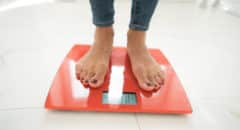
With Spring here, ads begin to escalate across social media promoting Spring cleaning for your body, as in “colon cleanse” or “detox cleanse.”
A variety of detoxification diets, regimens, and therapies have been suggested to remove toxins from the body, lose weight, or promote health. But are they healthy or simply a lot of hype?
What are “Detoxes” and “Cleanses”?
There are a variety of approaches to “detoxification,” including fasting, drinking only juices or smoothies, restricting certain foods, using dietary supplements or other commercial products, using herbs, cleansing the colon with enemas, laxatives, or colon hydrotherapy—also called “colonic irrigation” or “colonics.”
RELATED: 3 Natural Detoxes To Spring Clean Your Body
Does “Detoxing” or “Cleansing” Work?
Despite their popularity and health claims, there have been only a small number of studies on “detoxification” programs in people. While some have had positive results on weight and fat loss, insulin resistance, and blood pressure, the studies themselves have been of low quality—with study design problems, few participants, or lack of evaluation by other experts to ensure quality.
A 2015 review concluded that there was no compelling research to support the use of “detox” diets for weight management or eliminating toxins from the body. A 2017 review said that juicing and “detox” diets can cause initial weight loss because of low intake of calories but tend to lead to weight gain once a person resumes a normal diet. There have been no studies on the long-term effects of “detoxification” programs.

RELATED: The Fat Flush Detox Drink
Is “Detoxing” or “Cleansing” Safe?
Not all “detoxes” and “cleanses” are created equal. Here are seven reasons why you might want to steer clear of “detoxes’ and “cleanses.”
- The U.S. Food and Drug Administration (FDA) and Federal Trade Commission (FTC) have taken action against several companies selling detox/cleansing products because they (1) contained illegal, potentially harmful ingredients; (2) were marketed using false claims that they could treat serious diseases; or (3) in the case of medical devices used for colon cleansing, were marketed for unapproved uses.
- Some juices used for “detoxes” and “cleanses” that haven’t been pasteurized or treated in other ways to kill harmful bacteria can make people sick. The illnesses can be serious in children, older adults, and those with weakened immune systems.
Some juices are made from foods high in oxalate, a naturally occurring substance. Two examples of high-oxalate foods are spinach and beets. Drinking large quantities of high-oxalate juice can increase the risk of kidney problems. - Diets that severely restrict calories or the types of food you eat usually don’t lead to lasting weight loss and may not provide all the nutrients you need.
- Colon cleansing procedures may have side effects, some of which can be serious. Harmful effects are more likely in people with a history of gastrointestinal disease, colon surgery, severe hemorrhoids, kidney disease, or heart disease.
- “Detoxification” programs may include laxatives, which can cause diarrhea severe enough to lead to dehydration and electrolyte imbalances.
- Drinking large quantities of water and herbal tea and not eating any food for days in a row could lead to dangerous electrolyte imbalances.
Which is Better, Detox or Cleanse?
The terms “detox” and “cleanse” are often used interchangeably, but there can be subtle differences in their focus:
Cleanse:
- Primary Focus: Often emphasizes resting the digestive system and promoting elimination, particularly through the bowels.
- Methods: May involve liquid diets (like juice cleanses), specific food restrictions (like eliminating processed foods or allergens),
- increased fiber intake, or the use of laxatives or colonics.
- Perceived Benefits: Often associated with reduced bloating, improved digestion, and a feeling of lightness. Some people use cleanses to identify food sensitivities or to kickstart healthier eating habits.
Detox:
- Primary Focus: Aims to support the body’s natural detoxification organs (liver, kidneys, skin) in eliminating waste products and “toxins.”
- Methods: Can involve dietary changes (emphasizing whole foods, antioxidants, and sulfur-rich foods), increased water intake, exercise to promote sweating, and sometimes supplements or specific herbs believed to aid detoxification.
- Perceived Benefits: Often linked to increased energy, improved mental clarity, reduced inflammation, and overall well-being.
RELATED: Detox Your Organs With These 5 Foods

Do You Lose Weight When You Detox Cleanse?
Why you might lose weight during a detox:
- Calorie Restriction: Many detox diets involve severely restricting calorie intake through fasting, juice cleanses, or limited food choices. This calorie deficit will lead to short-term weight loss.
- Water Loss: Some detox programs, especially those involving laxatives or diuretics (found in some “detox teas”), can cause you to lose water weight. This isn’t actual fat loss.
Loss of Glycogen Stores: When you drastically reduce carbohydrate intake, your body depletes its glycogen stores, which are bound to water. This can also contribute to initial weight loss.
Elimination of Processed Foods: If the detox involves cutting out high-calorie, processed foods, you might naturally consume fewer calories.
Why this weight loss is usually not sustainable or healthy:
- Muscle Loss: Severe calorie restriction can lead to the loss of lean muscle mass along with fat. Muscle is metabolically active, so losing it can hinder long-term weight management.
- Nutrient Deficiencies: Restrictive detox diets often lack essential nutrients, vitamins, and minerals, which can be harmful to your health in the long run.
- Dehydration and Electrolyte Imbalance: Laxatives and diuretics can lead to dehydration and imbalances in important electrolytes.
- Weight Regain: Once you return to your normal eating habits after a restrictive detox, the lost water weight and potentially some fat are likely to be regained.
- Unrealistic and Unsustainable: Detox diets are usually short-term and don’t teach healthy eating habits for the long term.

Are All Fasting Programs Considered “Detoxes” and “Cleanses”?
Although some fasting programs are advertised with “detoxification” claims, other fasting programs—including intermittent fasting and periodic fasting—are being researched for health promotion, disease prevention, improved aging, and in some cases, weight loss.
There’s also an emerging body of evidence showing the benefits of intermittent fasting for type 2 diabetes and obesity are similar to those of a calorie-restricted diet, but easier to follow. Research shows intermittent fasting reduces inflammation, lowers blood pressure, heart rate, and cholesterol, and reduces insulin resistance.
What is the Best Way to Detox Cleanse the Body?
The good news is you don’t need “detoxes” or “cleanses” to purify your body. Our bodies are equipped with a five-organ system (skin, kidneys, intestines, lymphatic system, and liver) that works day and night to metabolize fat, fight inflammation, remove harmful toxins, and filter out built-up waste.
Adopting a healthy lifestyle with lots of whole foods, fresh fruits, vegetables and herbs, and spices can invigorate, strengthen and support your body’s natural detoxification system. On the other hand, eating highly processed foods loaded with artificial ingredients, such as preservatives and additives, can add more toxins to your body.
It’s always advisable to consult with a healthcare professional before making significant changes to your diet or lifestyle, especially if you have any underlying health conditions.








